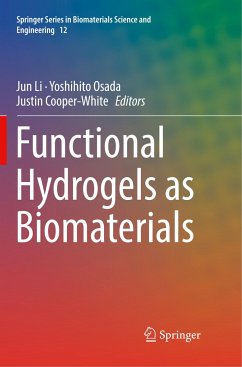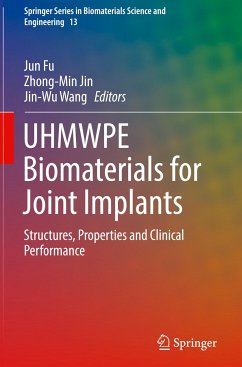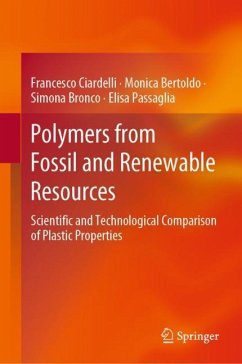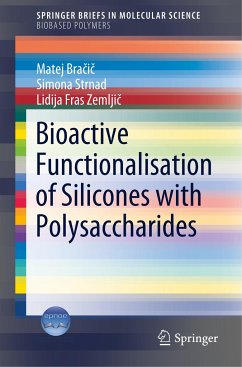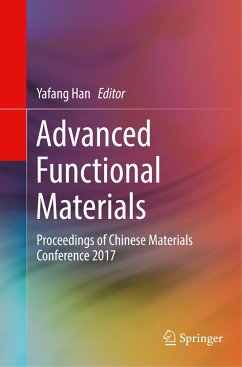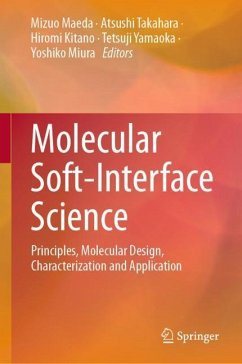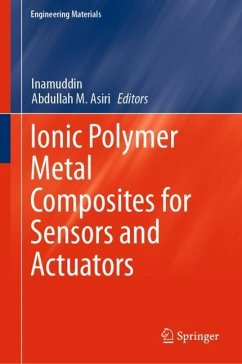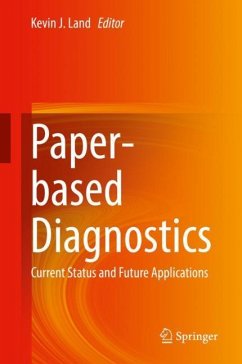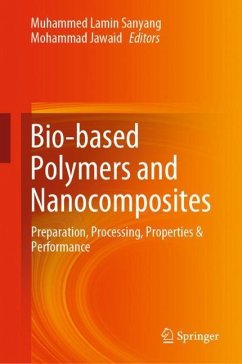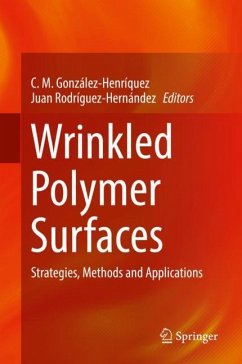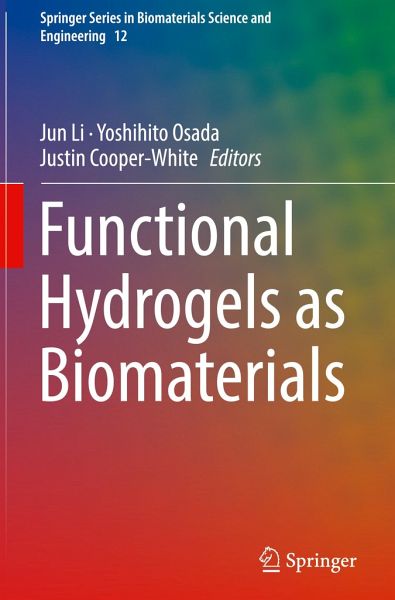
Functional Hydrogels as Biomaterials

PAYBACK Punkte
46 °P sammeln!
This book introduces readers to the latest advances in hydrogel biomaterials, mainly focusing on the emerging areas of synthetic and biopolymer hydrogels formed through specially designed chemical or physical crosslinking, and the cyclodextrin-based host-guest supramolecular self-assembly, for cell encapsulation, cell expansion, cell differentiation and tissue repair, stem cell culture, and cellular therapy and drug delivery applications.The book was written by experts at the forefront of these interdisciplinary areas and is intended for all researchers working in the fields of biomaterials an...
This book introduces readers to the latest advances in hydrogel biomaterials, mainly focusing on the emerging areas of synthetic and biopolymer hydrogels formed through specially designed chemical or physical crosslinking, and the cyclodextrin-based host-guest supramolecular self-assembly, for cell encapsulation, cell expansion, cell differentiation and tissue repair, stem cell culture, and cellular therapy and drug delivery applications.
The book was written by experts at the forefront of these interdisciplinary areas and is intended for all researchers working in the fields of biomaterials and biomedical engineering, as well as medical professions.
Jun Li is a Professor at the Department of Biomedical Engineering, National University of Singapore, Singapore.
Yoshihito Osada is a Professor at RIKEN Advanced Science Institute, Japan.
Justin Cooper-White is a Professor at the Australian Institute for Bioengineering and Nanotechnology, University of Queensland, Australia.
The book was written by experts at the forefront of these interdisciplinary areas and is intended for all researchers working in the fields of biomaterials and biomedical engineering, as well as medical professions.
Jun Li is a Professor at the Department of Biomedical Engineering, National University of Singapore, Singapore.
Yoshihito Osada is a Professor at RIKEN Advanced Science Institute, Japan.
Justin Cooper-White is a Professor at the Australian Institute for Bioengineering and Nanotechnology, University of Queensland, Australia.



